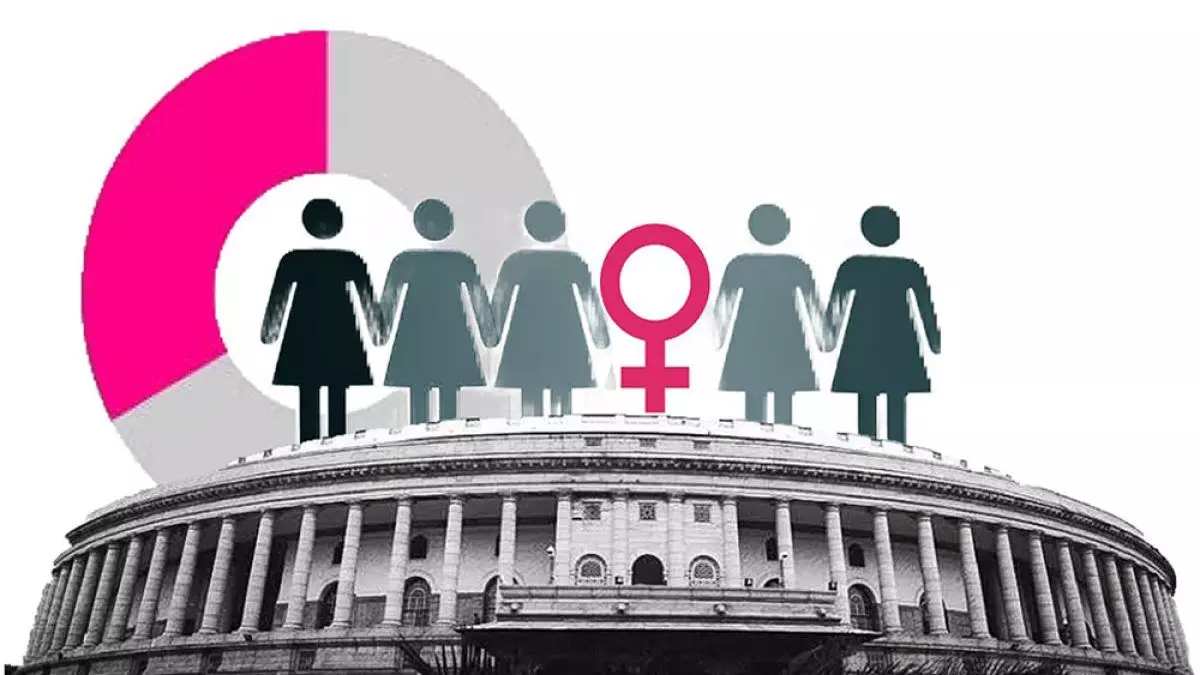TRENDING TAGS :
Women Reservation Act, The Way Forward
The Act proposes Horizontal Women’s Reservation, meaning that even though there is an SC/ST quota, the reservation for women can be applied.
The Women’s Reservation Bill of 2023, also known as the Nari Shakti Vandan Bill, marked as the 128th Constitutional Amendment Bill, was recently unanimously passed by both the Lok Sabha and the Rajya Sabha and later signed into a law by the President of India. It is now an Act.
The bill was introduced in the Lok Sabha by law minister Arjun Ram Meghwal. The primary objective of this Act is to reserve 33% of the seats in State Legislative Assemblies, the Delhi Assembly, and the Lok Sabha for women. In accordance with Article 334-A of the Constitution of India, this reservation will take effect after the census conducted following the publication of this Act. Initially, this reservation will be provided for a period of 15 years. However, it will continue until a date determined by the Parliament.
The Act proposes Horizontal Women’s Reservation, meaning that even though there is an SC/ST quota, the reservation for women can be applied. In other words, one-third of all available seats can be reserved for women, irrespective of other reservation categories. This Act also addresses the rotation of seats, implying that the designated seats for women may be distributed to different constituencies in a State or Union Territory through rotation.
Regarding women's reservation in the NCT of Delhi, an amendment to Article 239AA of the Constitution is required, as it confers special status on Delhi. This provision grants Delhi an administrator and a Legislative Assembly, along with certain limitations and powers. Additionally, other amendments will be needed in Articles 82 and 170(3) of the Constitution of India. Article 82 of the Constitution deals with the readjustment of the number and boundaries of constituencies of State Assemblies and the Lok Sabha after each census. Similarly, Article 170(3) addresses the composition of State Legislative Assemblies.
Currently, Article 243D of the Constitution provides for the reservation of seats for women, SCs, and STs in Panchayats. According to this provision, women should hold a minimum of 33% of seats reserved for SCs and STs.
What is the way forward?
India is home to a diverse and vibrant population of women, comprising approximately half of the country's 1.3 billion people. The status of women in India is a complex and evolving issue. While there have been significant strides in recent years, with more women gaining access to education and employment opportunities, gender disparities persist in various aspects of Indian society. Traditional gender roles, limited access to healthcare and education in certain regions, and societal norms continue to challenge women's full participation in all spheres of life. Nonetheless, Indian women have made remarkable achievements in politics, business, science, and the arts, demonstrating resilience and determination in the face of these challenges. Efforts are ongoing to address gender inequality and promote women's empowerment through legislative reforms and grassroots initiatives, showcasing a commitment to a more equitable and inclusive future for women in India.
Going forward, the inclusion of women as law-makers and decision makers of the country will kick start democracy and open a whole new world of solutions to women related issues and is going to boost the progress of the country. It is important to have women representation in decision making process in order to tackle the problems relating to various crimes against women, low participation of women in workforce, poor health facilities for women, etc. With Women’ Reservation Bill and involvement of women in politics, women will be empowered at many levels. It will inspire women to take leadership roles. Currently, there are only 82 women is Lok Sabha, however, after passing of this Bill, this number will increase to 181.
However, in order to go forward with Women’s Reservation Bill, here are some key points on the way forward after the passage of the bill:
Awareness and Education: In order for proper implementation of Women’s Reservation Bill, it is of utmost importance to educate the women of the country of their rights and the importance of their participation in politics and governance.
Involvement of Political Parties: It is important for political parties to engage and involve more women candidates in elections.
Addressing Social and Cultural barriers: Apart from the legislative changes, it is necessary to bring changes at grass root level, to challenge traditional roles, societal norms and gender stereotypes that stop women from participating in politics.
Ensuring inclusivity: It is important to ensure that women from all backgrounds including those from marginalised communities be included and given a platform to contest elections.
Public Engagement: It is necessary to engage and involve public and hear the public voices on women’s issues.
Policy Integration: Representation of women should not only be limited to the political sphere. It is important to come up with more gender sensitive policies that take care of women not only in strengthening their political stance but also by bringing policies that address women’ health issues, education and workforce.
In summary, the Women's Reservation Bill is a positive step towards increasing women's representation in Indian politics, but its success will depend on effective implementation, ongoing efforts to change societal norms, and a commitment to addressing the various challenges that women continue to face in India. It has the potential to empower women at all levels of society and contribute to a more inclusive and equitable future for India.



